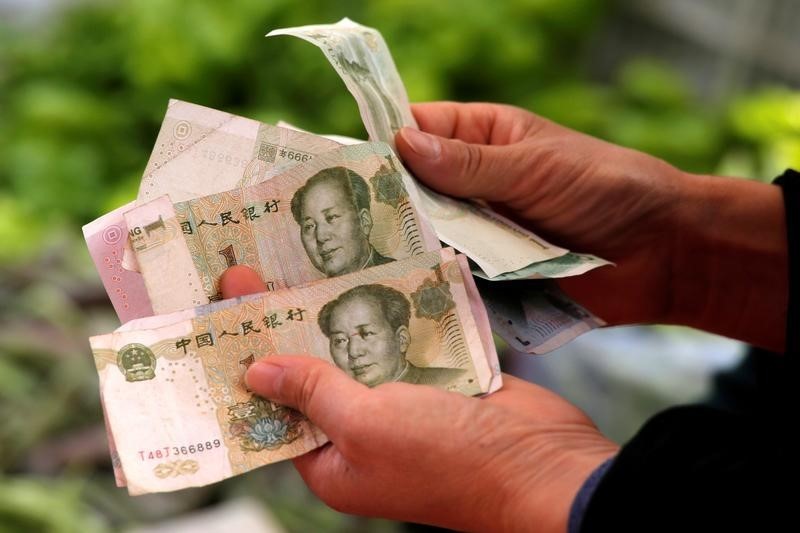Investing.com — Most Asian currencies rose Monday as the dollar weakened ahead of the inauguration of newly elected U.S. President Donald Trump, while China’s central bank kept lending rates unchanged to support the yuan.
Regional currencies posted marginal gains as markets were cautious ahead of Trump’s inauguration ahead of additional trade tariffs on Chinese exports. This could trigger a trade war and impact most Asian economies due to their trade-dependent economies.
The stock was 0.3% lower in Asian trading, retreating from a 26-month high reached last week. The dollar has remained consistently near two-year highs after the Federal Reserve turned hawkish last month.
also fell by 0.3%.
The Chinese yuan is largely muted even as the PBOC maintains prime lending rates
The onshore pair of the Chinese yuan rose 0.1%, while the offshore pair gained 0.2%.
The Chinese yuan traded within a narrow range on Monday, showing little reaction to the People’s Bank of China’s decision to keep prime lending rates steady.
The PBOC kept its one-year interest rate unchanged at 3.1% and kept the , used to set mortgage rates, at 3.60%.
This move, aimed at supporting a weakening yuan, supporting liquidity and supporting economic recovery, had little impact on market sentiment for the currency.
The interest rate decision for Japan and Malaysia is awaited
The Japanese yen pair fell 0.3% as markets priced in a rate hike later this week.
The BOJ is expected to raise rates next week, provided there are no market disruptions after Trump’s inauguration. The central bank is likely to reiterate its commitment to further rate hikes as the economy continues its recovery, Reuters reported on Friday, citing sources familiar with the matter.
The Malaysian ringgit pair fell 0.1%, ahead of the . The BNM is expected to keep interest rates steady at 3.00% for the tenth time in a row on Wednesday, thanks to robust economic growth and controlled inflation, a Reuters poll showed.
Elsewhere, the Australian dollar rose 0.2%, while the Singapore dollar fell 0.3%.
The Thai baht pair was largely unchanged, while the Indian rupee pair fell 0.1%.
The South Korean won pair fell 0.4% due to an ongoing political crisis in the country.


